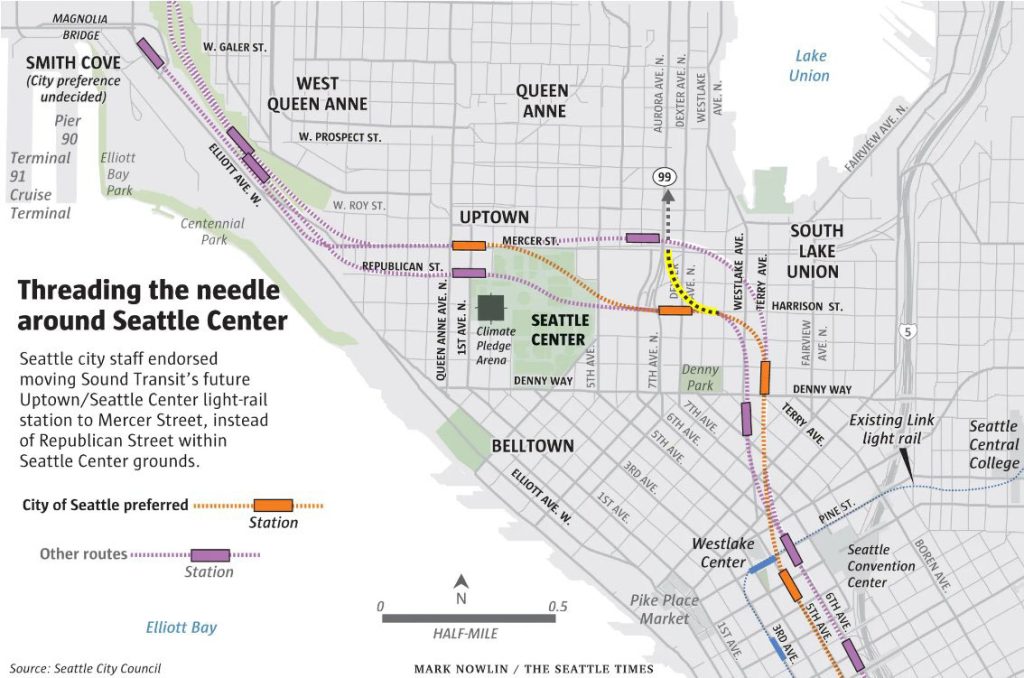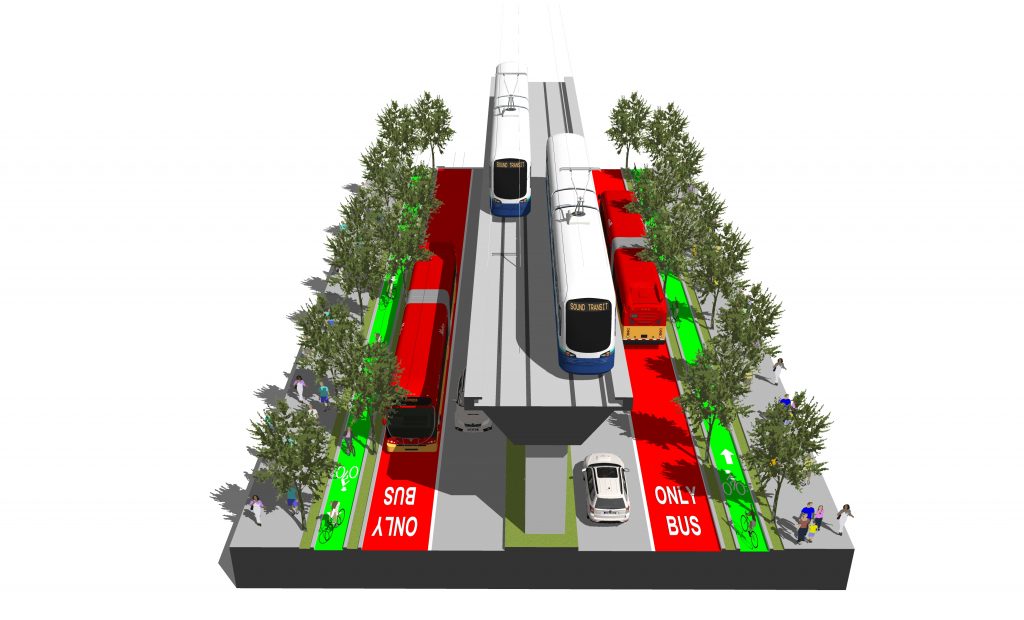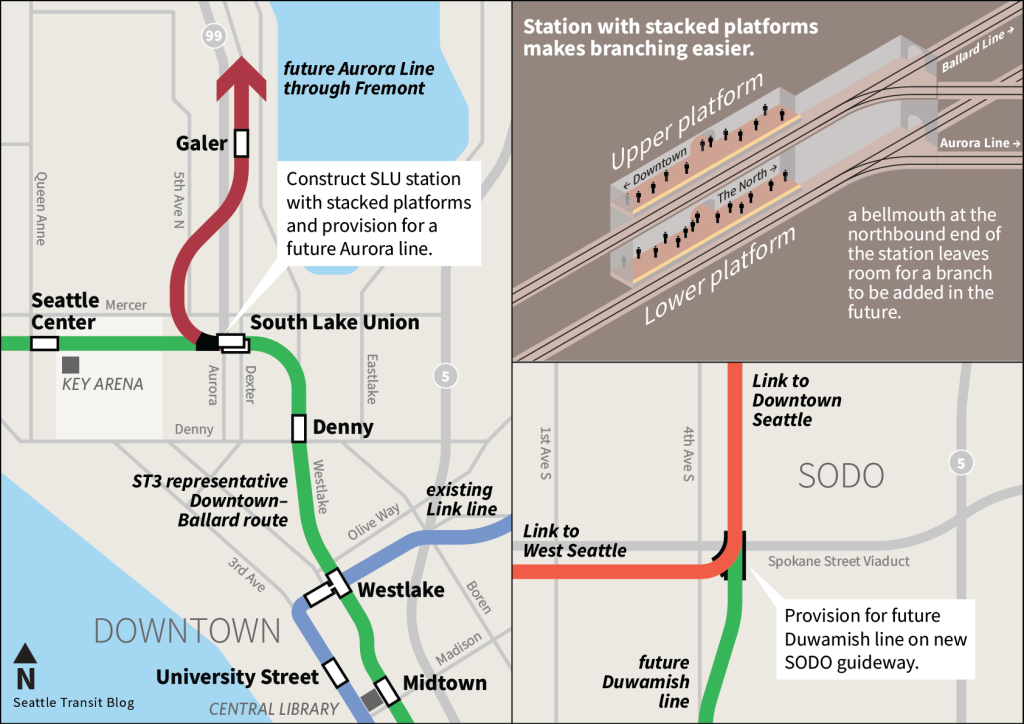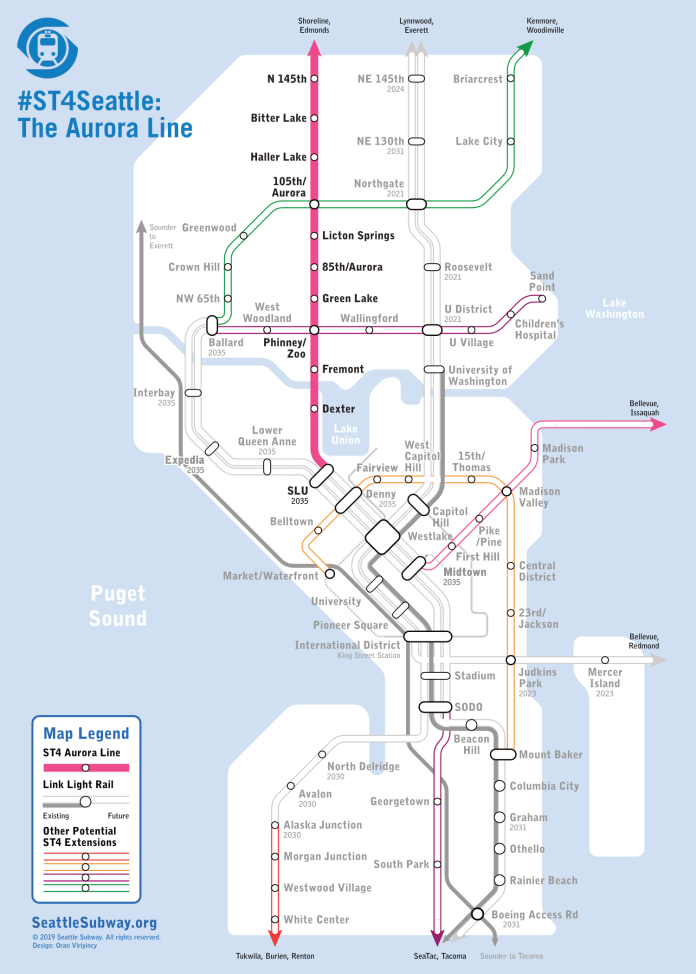Once in a life-time chances are just that, once. New York City planners did the right thing in 1870 debuting the subway system, Barcelona did the right thing when Ildefons Cerdà planned the expansion of the city in 1859, and Sound Transit has a chance to get it right with its Sound Transit 3 (ST3) expansion by planning for a future expansion that captures high capacity transit corridors and densely growing neighborhoods.
Right now, planners, public commenters, board members, and city councilmembers are all weighing in on where the transit lines should run, whether they should be elevated, tunneled, and how high or deep we should place them. One of those debates is covering the Green Line, connecting South Lake Union, the Seattle Center, Interbay and Ballard all to the regional system.
The Green Line expansion will be tunneled and run next to Highway 99, better known as Aurora Avenue in Seattle. This is where we talk about visions of the future, the chance to do something cheap, effective, and logical. Like plotting Barcelona’s grid patterned Eixample or running steam car buggies under New York City. It’s where we should take advantage of this once in a life-time chance and build the expansion for the Pink Line, a proposal to run light rail right up Highway 99 as part of the next “ST4” expansion.

To do so may sound expensive, wonky, and complicated. But that’s only if Sound Transit doesn’t plan for the expansion as part of ST3. If we don’t build provisions for an expansion now, it will be too costly, disruptive, and technically complicated to do so later. By building an off ramp for a future Aurora line, Sound Transit can expand the network up Highway 99 without any service disruption — something the agency probably wishes it was protected from considering recent news. Seattle Transit Blog proposed this back in 2018, years ahead of the final routing, and still, four years later, Sound Transit still has not added this provision to its plans.
Well, like we said earlier, chances like these only come around once
For a small cost, building the off ramp for the future Pink Line expansion will open the opportunity to expand Link light rail to the corridor with the state’s highest transit use. Before the pandemic, the Rapid Ride E line carried 18,000 riders a day, and, during the pandemic and thereafter, with everyone working from home and downtown offices still at 35% capacity, it still is carrying over 10,000 riders a day.

This corridor is not only a high transit corridor but also a direct one, carrying people ranging from white collar workers, to working class folks, and other people who need to do their day-to-day tasks without a car. Also, when combined with other parallel routes that filter onto Aurora, and the ridership of the corridor grows to 30,000 daily riders.

Many would argue this means Link should have expanded up Highway 99 instead of I-5. But that ship has sailed. And we should board this one before it leaves the dock. By building the off-ramp tunnel, we open the opportunity to move these thousands of riders into a train network that reaches the entire region as jobs and mobility patterns change. One small off ramp builds the opportunity for more.
Who knows, after we build this expansion opportunity and connect Aurora Avenue to the Link system, and ridership and popularity of it grows, maybe Washington’s Department of Transportation will hand over their overpromised 99 Tunnel and let us run high speed rail or another expansion of Link inside it?

Ryan DiRaimo
Ryan DiRaimo is a resident of the Aurora Licton-Springs Urban Village and Northwest Design Review Board member. He works in architecture and seeks to leave a positive urban impact on Seattle and the surrounding metro. He advocates for more housing, safer streets, and mass transit infrastructure and hopes to see a city someday that is less reliant on the car.

